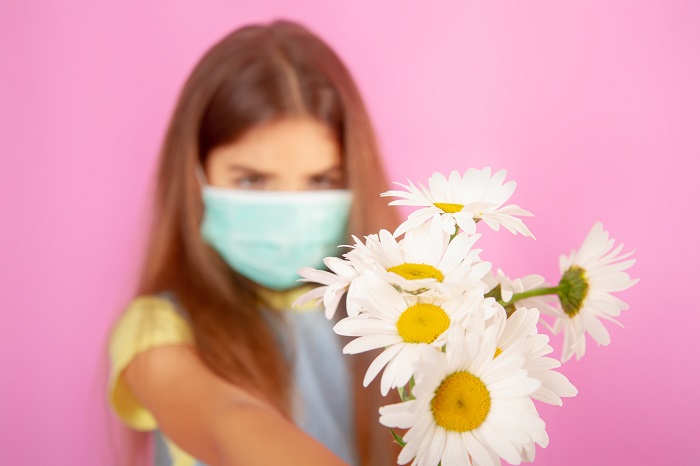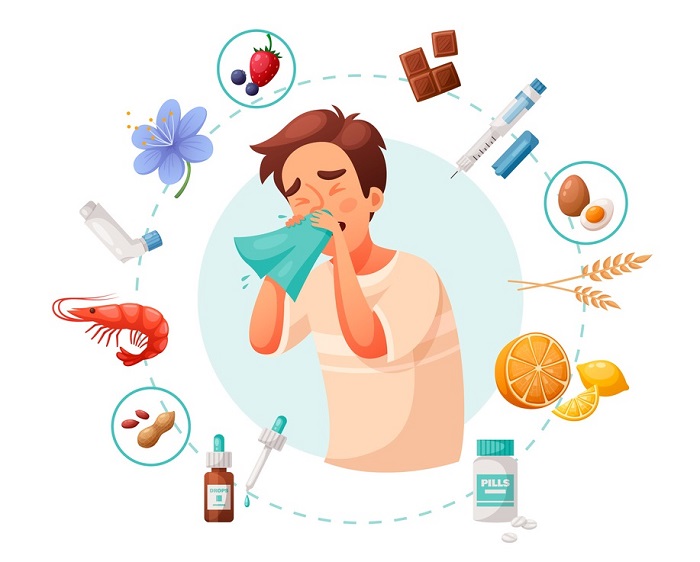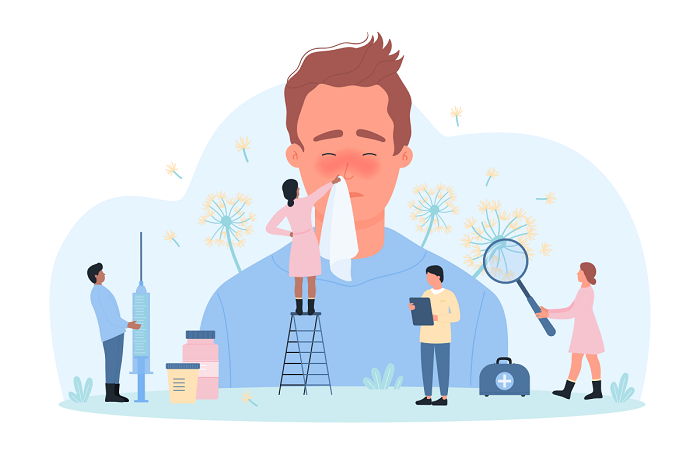News& Information
-
Medical Trends
 Home -> News& Information -> Medical Trends
Home -> News& Information -> Medical Trends
Prevention and treatment of allergic rhinitis
Author:Dr.Sunny Kim
Hypersensitive rhinitis, also known as allergic rhinitis, is a chronic inflammatory disease of nasal mucosa characterized by seizures of sneezing, runny nose and nasal congestion after exposure to allergens in susceptible individuals.
Allergic rhinitis is a common chronic inflammation of the upper respiratory tract. About 500 million people in the world suffer from allergic rhinitis, which is mainly in children and young adults and can induce asthma. Patients with allergic rhinitis have a 3-5 times higher risk of asthma than those without a history of rhinitis.
According to whether the allergen is seasonal or not, it can be divided into:
1. Persistent allergic rhinitis - is caused by perennial allergens such as house dust and mites, but perennial rhinitis does not occur every day of the year. It can also be seasonal.
2. Seasonal allergic rhinitis - mainly caused by the seasonal dissemination of plant pollen, also known as "hay fever".

Cause of allergic rhinitis:
Allergic rhinitis is a complex polygenic disease, and environmental factors mainly refer to a variety of allergens existing in human living environment.
Inducing factor
The allergens in the environment mainly include inhalation allergens (such as pollen, dust mites, animal dander, fungi, etc.) and food allergens (such as milk, soybean, peanut, nut, egg, etc.), among which exposure to inhalation allergens is the main cause of allergic rhinitis.
Typical Symptoms
Itchy nose, sneezing, watery nose, stuffy nose.
Accompanying symptoms
May be accompanied by ocular symptoms, including itchy eyes, watery eyes, red and burning eyes;It can also be accompanied by throat itching, chest tightness, asthma attacks, cough and other lower respiratory symptoms.
Principle of treatment
1.Avoid exposure to allergens: Try to avoid exposure to known allergens
(1) People who are allergic to pollen should avoid going out during pollen spreading season. If you must go out, it is recommended to wear masks and glasses to reduce nasal inhalation or conjunctival contact with pollen, so as to reduce nasal and eye symptoms.
(2) People who are allergic to dust mites and fungi should keep the room clean, dry and ventilated.
(3) People allergic to feathers and animal dander should avoid contact with animals as far as possible.

2.Medical treatment
(1) Antihistamines: Commonly used oral antihistamines include cetirizine, loratadine, etc.Antihistamine nasal sprays include levocarbastine nasal sprays, azestine nasal sprays, etc.
(2) Glucocorticoid: Nasal Glucocorticoid preparation is characterized by a strong local effect on the nasal mucosa and can minimize systemic adverse reactions. The commonly used nasal sprays include budesonide, mometasone furoate, propionic acid or fluticasone furoate.A small number of patients with more severe symptoms, local medication efficacy is not enough, can take short-term drugs such as pernisone acetate to control the symptoms.
(3) Decongestants: intranasal topical use of decongestants can relieve nasal congestion, commonly used with oxymetazoline nasal spray, continuous use shall not exceed 7 days.
(4) Leukotriene receptor antagonists: the most commonly used is montelukast, which ameliorates nasal and eye symptoms caused by allergens, and application before pollen season can significantly improve symptoms.
3. Nasal saline irrigation
Washing the nasal cavity with salt water can moisten the nasal cavity and remove blocked mucus and scabs, which can help improve breathing.It can restore the damaged nasal mucosal ciliary function, but also can remove excessive nasal secretion and reduce edema, improve the efficacy of nasal spray.
4.Traditional Chinese Medicine treatment
The symptoms of allergic rhinitis can be alleviated by traditional Chinese medicine and acupuncture.

Prognosis
Allergic rhinitis can not be completely cured at present, but through standardized comprehensive prevention and treatment, symptoms can be well controlled, and significantly improve the quality of life.
Warm Tip: Drugs need to be used correctly under the guidance of doctors.




